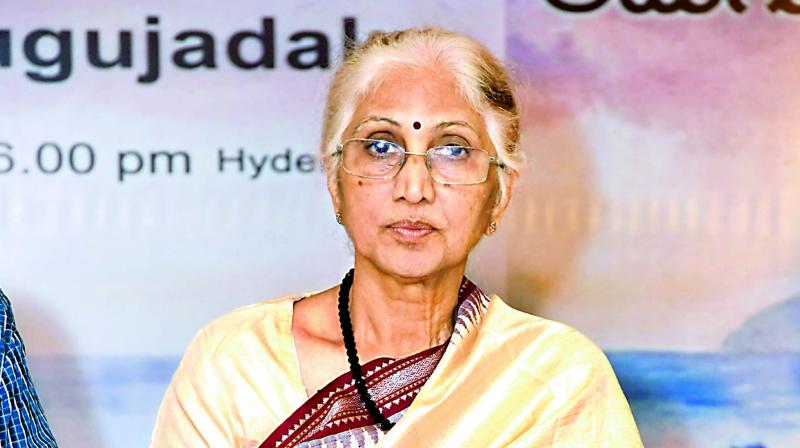A plea for preservation

Telugu literary lovers in Hyderabad were in for a treat on Sunday evening at the launch of Emani Rani Sarma’s book, Thathagatuni Adugujadalo, The Vanishing (fading) Footsteps of the Buddha.
The packed house got an opportunity to listen to the insightful anecdotes Rani Sarma shared while penning the book, which is the author’s personal journey into the tell-tale remains of the Buddhist faith which had deep roots for about a thousand years in north coastal Andhra Pradesh.
On what prompted her to write the book, she reveals, “Three ancient Buddhist sites (Thotlakonda, Bavikonda and Pavurallakonda) near Visakhapatnam were recently evacuated by the government for commercial purposes. The government has violated all the laws of the land and archaeological acts to give away the land to film societies and others. So I felt there was a growing need and responsibility to uphold these sites.”
A staunch follower of Buddhism, Rani further reveals, “I started writing the book in English, but later I felt that if it’s in the regional language (Telugu), the awareness and sanctity of the sites can be better understood by the local audience, who in turn, can exert pressure on the government to uphold the heritage of the sites.”
Thanking Sudhakar Unudurti for assisting her in the translation of the book, she says, “The rich heritage not only belongs to the people of that region, but also to the entire country and the future generations. We can’t tamper with what we have inherited and commercialise it later. Over 535 million people the world over follow Buddhism, which originated in India.”
A heritage activist, Rani has done extensive research and travelled over north coastal Andhra Pradesh to put the spotlight on the material remains of Buddhist sites. “It was a joy to research and write about the sites. But I also realised how heritage sites are being undervalued and how the country has become materialistic,” she laments, adding that the country has lost its essence of Indianness and catholicity.
Rani Sarma’s narrative further discusses Buddhist archaeology in India, how many Buddhist sites have been identified in north coastal Andhra, and interestingly, how the localities continue to follow Buddhist traditions despite the hundreds of years since the religion left India’s shores.
In the process of writing this book, Rani further states that she has found out other significant Buddhist sites and their fading state of affairs. “India’s essence lies in the cultural heights it has reached, given the freedom that people had to choose their own path and seek the teachings of their Gurus, but unfortunately that doesn’t seem to be the case anymore,” she rues.

